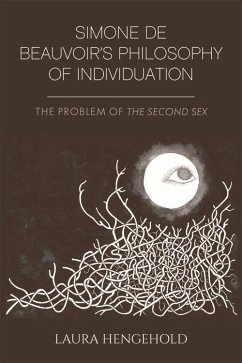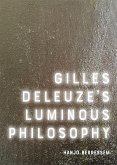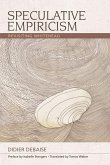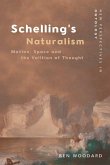'Hengehold calls her book a gamble. What is the gamble? That Beauvoir's ideas become freer through Deleuze. This does not mean Beauvoir becomes a Deleuzian. She becomes, rather, the creator of concepts for an ontology of becoming. The gamble's payoff? A Beauvoir we've never read before!' Lynne Huffer, Emory University An experimental reading of The Second Sex through a Deleuzian lens Most studies of Simone de Beauvoir situate her with respect to the tradition of twentieth-century phenomenology begun by Husserl and Heidegger, as well as the model of consciousness found in Hegel's struggle for recognition. Laura Hengehold offers an alternative reading of Beauvoir's phenomenology in The Second Sex from a Deleuzian standpoint, one designed to prevent recognition from becoming an Oedipal trap for women's individuation. Beauvoir's effort to prioritise becoming over being, her inquiry into the production of Otherness and her claim that sexism is a problem rather than a historical given may reflect early interests in Bergson and Leibniz, thinkers who were also crucial for Deleuze. Though focussing on The Second Sex, Hengehold shows how the task of developing an individuating response to historical events, including the representations that crystallise their sense, is repeated in Beauvoir's novels. In doing so, she identifies and clarifies the elements of Deleuze's thought, alone and in collaboration with Guattari, which may be most useful to contemporary feminists who are simultaneously rethinking the becoming of gender and the becoming of philosophy. Laura Hengehold is Associate Professor of Philosophy at Case Western Reserve University. Cover image: Invisible Cities: Zobeide, Matt Kish, 2014 © Matt Kish Cover design: [EUP logo] edinburghuniversitypress.com ISBN 978-1-4744-1887-4 Barcode
Hinweis: Dieser Artikel kann nur an eine deutsche Lieferadresse ausgeliefert werden.
Hinweis: Dieser Artikel kann nur an eine deutsche Lieferadresse ausgeliefert werden.








